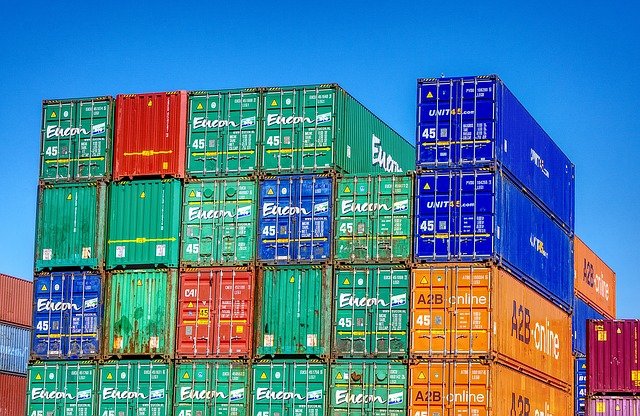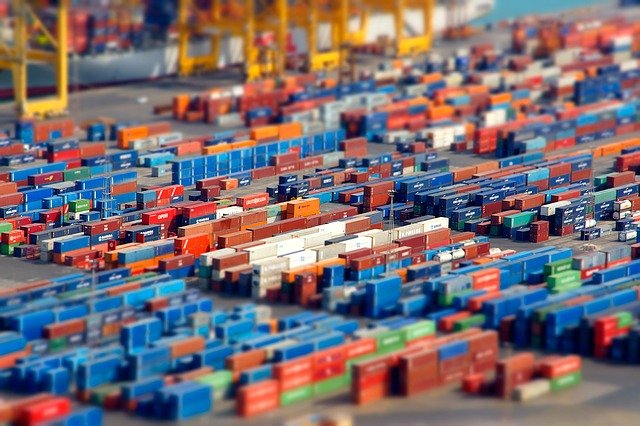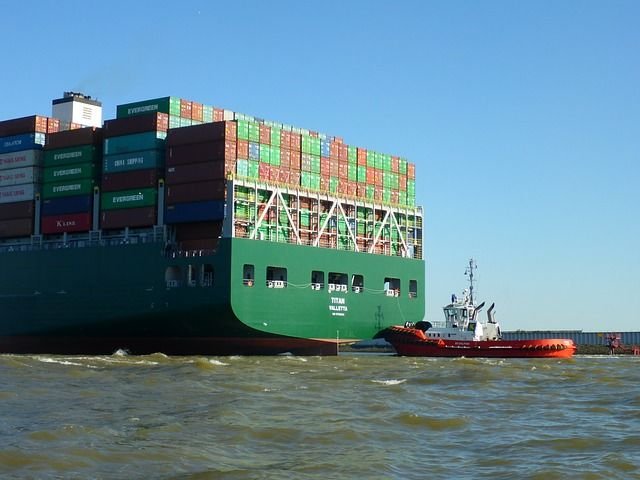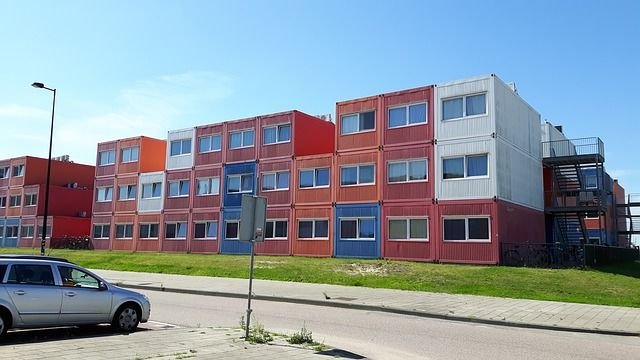Shipping containers, more appropriately called “intermodal freight containers,” are designed to economically hold freight for shipping around the world. “Intermodal” means that they are used for shipping by truck, train, or ship. They are also used for handling and storage of that freight.

Colorful cargo containers stacked at a container terminal
Photo by distel2610 courtesy of Pixabay
These containers are designed for repeated use, often on ocean-going ships. They are constructed of a type of steel that does not rust like ordinary steel, and they are coated to withstand harsh environments. They are strong enough to withstand the structural stresses of ocean waves and handling in the ports. They are also designed to be securely attached to one another at the corners. Theoretically, a container ship could capsize and dump a single floating block of containers into the ocean, provided there is enough open space or light-weight materials in the containers for them to float.

A container ship passes under the Golden Gate Bridge, San Francisco, California, USA
Photo courtesy of Pixabay
Here is my (@osopapa's) YouTube playlist of videos about shipping containers with emphasis on converting them into homes. I have tried to carefully curate this playlist for you. I have watched each of these videos multiple times before adding them to the playlist. I also watched many more videos that did not make the cut. Clicking on the photo below will show you ONLY the first video in the playlist in the Steemit video player. To see the entire playlist, click here.
There are over 36 million of these intermodal shipping containers in existence. In locations with a trade deficit, these containers sometimes build up due to the cost of shipping them back to their points of origin empty, and they can be purchased at these locations for very reasonable prices. Several million of them have been converted to other uses.

Container terminal at the port of Barcelona
Photo by schuger courtesy of Pixabay
Intermodal containers are designed to be stacked on top of each other up to ten layers deep. They are engineered to transfer weight as a “point load” at each of the corners. When converting the containers to other uses, it is important to understand that the containers are very strong and only need to be supported at the corners (even when stacked) unless a significant amount of steel is cut out of them. They are significantly weakened, however, when windows and doors are cut into them without the addition of properly engineered strengthening. They also need additional strengthening when used in underground applications.

Container ship and tug on the Elbe near Hamburg
Photo by heju courtesy of Pixabay
Here is a link to an interesting article about the sizes and types of shipping containers by fellow Steemer pjcswart. The article also contains helpful forward links to additional information.

Shipping containers made into student housing in Amsterdam
Photo by FrankMagdelyns1 courtesy of Pixabay
As always, please remember to follow, upvote, reply, resteem, share, and promote. Thanks!
Some information for this article was sourced from Wikipedia using their articles entitled Shipping container and Intermodal container.
Additional keywords and search terms (for SEO): color, destinations, freight, harbor, harbour, housing, intermodal, maritime, ocean, port, sea, stacked, trade, transport, transportation, travel, vessel.
@minnowpond1 has voted on behalf of @minnowpond. If you would like to recieve upvotes from minnowponds team on all your posts, simply FOLLOW @minnowpond.
To receive an upvote send 0.25 SBD to @minnowpond with your posts url as the memo To receive an reSteem send 0.75 SBD to @minnowpond with your posts url as the memo To receive an upvote and a reSteem send 1.00SBD to @minnowpond with your posts url as the memo